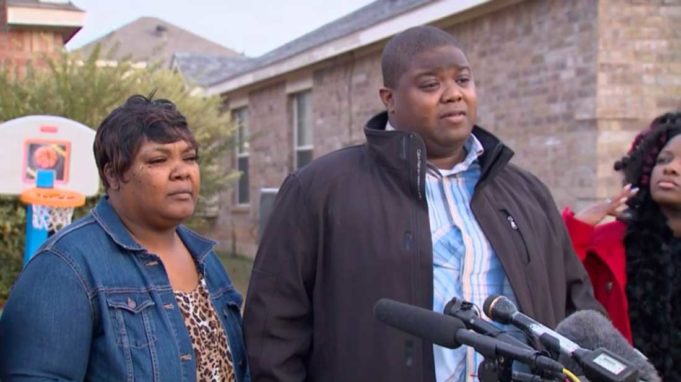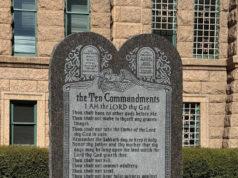No lawsuits have been filed against the city of Fort Worth and its police department on behalf of Jacqueline Craig. A video showing a white cop bullying and then arresting Craig and her daughters, who are African-American, went viral on Dec. 21. Afterward, police dropped charges of resisting arrest and interfering with a public servant against the Craigs and suspended police officer William Martin for 10 days.
A lawyer for Craig threatened a federal lawsuit against the city a couple of months ago. It won’t be the first time someone has sued the city in connection with excessive force by police. The city has paid more than $2.2 million to settle nine lawsuits involving alleged cases of police brutality since 2010. That’s a lot of money. You can fix plenty of potholes with $2.2 million.
How do these settlements compare to other cities?
The state’s largest city, Houston, has paid $356,278 in settlements in 12 excessive force lawsuits. The city’s population exceeds 2 million.
San Antonio officials have shelled out $1,086,000 in 24 excessive force cases in a city with a population of about 1.5 million people.
Dallas, with a population of about 1.3 million, reports paying a whopping $8,790,322 to settle 20 cases.
Austin, which brags about its weird and friendly vibe, still managed to shell out $1,700,067 to settle 10 cases of excessive force. The city has almost 1 million residents.
The next biggest city in Texas is dear ol’ Fort Worth, with about 900,000 residents. Cowtown paid $2,214,900 to settle nine cases since 2010.
These figures were solicited from cities through open records requests and reflect settlements paid since 2010.
A U.S. city that compares in size to Fort Worth is Columbus, Ohio, which paid $1,979,750 to settle 24 cases. However, the city did not provide settlement figures for 2010, so the total amount might be higher than $1.9 million.
What does all this mean? Well, it indicates that Fort Worth police are doing a relatively good job of keeping the peace without relying on excessive force.
Here’s the kicker: Fort Worth’s total amount includes a $2 million settlement on the Michael Jacobs Jr. case. A police officer used a Taser to stun Jacobs twice – once for 49 seconds – during a confrontation with police in 2009. Jacobs died afterward. A grand jury did not indict the police officer, and city attorneys admitted no liability in the death, even though Tarrant County’s medical examiner had ruled the death a homicide, saying Jacobs had died as a result of the tasing.
In 2010, city officials paid out what was reported as the largest-ever settlement involving a death case in Fort Worth’s history.
Perhaps prompting that large amount was the fact that Jacobs’ family filed a federal lawsuit. Since it was a federal rather than state filing, the penalty amount would not have been capped in the instance that Fort Worth lost. City officials played it safe, avoiding a trial and potential mammoth penalty by settling.
Take away that $2 million payout, and Fort Worth’s settlement history is low, with only $214,900 spent on eight cases spread out over six years.
Fort Worth attorney Jim Lane, who represented the police officer accused of tasing Jacobs, said Fort Worth’s typically low payouts are a testament to the strong leadership and talent in the city attorney’s office. Lane specifically mentioned Deputy City Attorney Gerald Pruitt, who serves as division chief in charge of prosecuting and defending city litigation. Sometimes cases will warrant paying settlements, Lane said. But when cases fall short, Pruitt can be expected to fight to protect the city from liability, Lane said.
“Sounds like the city attorney’s office is really doing its job holding down cases and settlements,” Lane said. “Unfortunately, you can get to the point where you try to settle everything. [Pruitt] has drawn a line in the sand. He will settle a case that needs to be settled. But he will try you, too. Whew! He’ll try you. The key … is the quality of the lawyers you have in your city attorney’s office. Fort Worth has got a great city attorney’s office.”
We don’t know if Fort Worth’s city attorneys are great, or whether our police officers are more careful than cops in other cities. We’d like to think so. But one thing appears certain – they’re doing a better job than those sad sacks in Dallas.











